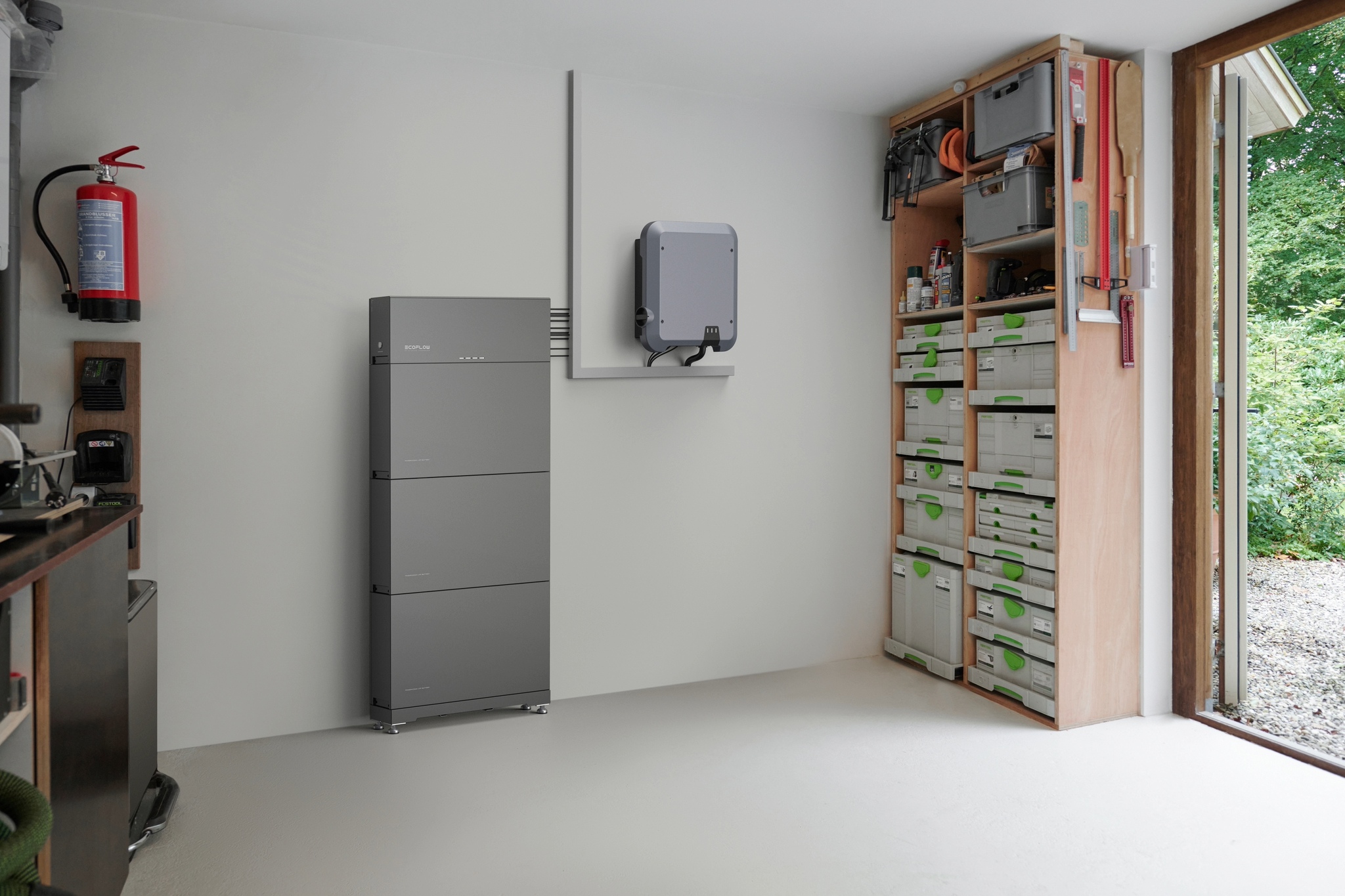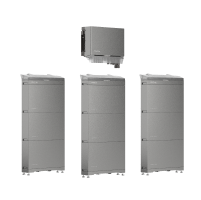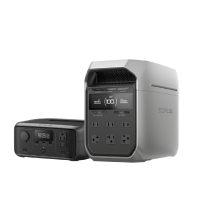UK Battery Storage: Why More Homeowners Are Investing in Solar Batteries
As more homes in the UK turn to solar energy, one thing is becoming clear: storing that power is just as important as generating it. This is why UK battery storage solutions are gaining ground—t’s a smart way to stay powered, save money, and take control of your energy, no matter the forecast.
The rapid growth of UK battery storage installations
More and more UK homeowners are investing in battery storage for their homes, turning UK battery storage into one of the fastest-growing clean-energy upgrades. In 2024 alone, over 22,000 home battery systems were installed.
A big part of this growth comes from MCS-certified installations, which help ensure safety and quality. Back in 2022, only 34 batteries were certified each month. Now, in 2024, that number has jumped to over 1,100 every month. February even set a new record, with more than 1,000 certified batteries installed in just one month.
Together, all these home systems now provide more than 400 MWh of storage capacity, which is enough to power tens of thousands of homes during busy times. And with no value-added tax on battery installations since February 2024, even more people are expected to join the shift toward storing their own energy.
Falling costs and new incentives for home battery energy storage
UK battery storage is becoming increasingly affordable, thanks to advancements in technology and support from the UK government.
As of February 2024, UK homeowners benefit from zero VAT on domestic battery installations, with the exemption running through 2027, cutting upfront costs and improving long-term batteries savings. At the same time, battery prices have gone down because they’re now made on a larger scale and are easier to get. Many UK installers also offer better deals and more complete packages than before.
If you pair a battery with solar panels, you can save hundreds of pounds each year on your energy bills. And with smart tariffs that change during the day, batteries help you store cheap energy and use it when prices are higher, making your system pay off faster over time.
How solar panels and battery electricity storage work best together
On their own, solar panels let you use about 30% of the energy you produce. But when you add a battery, you can use up to 80% of your solar energy. You can save more and rely less on the grid.
A battery stores the extra power your panels make during the day, so you can use it later when the sun’s gone down. For many households, this combination of solar panels and battery electricity storage delivers the biggest battery savings over the system’s lifetime.
Even if you don’t have solar panels, a battery can still help. Some households charge their battery at night when electricity is cheap, then use that stored energy during the day when prices go up.
EcoFlow’s PowerOcean and PowerOcean Plus are built for both setups—whether your home has a single-phase or three-phase system. Paired with PowerInsight, EcoFlow’s energy management tool, you can track your energy usage, schedule charging times, and clearly see how much you’re saving.
Beyond savings: Resilience and smart BESS battery energy storage systems

Saving money is a big reason people get home batteries, but it’s not the only one. Batteries can also give your home backup power during blackouts. They keep important things like lights, kitchen appliances, or heating running when the grid goes down.
This kind of setup is called a Battery Energy Storage System (BESS). It includes the battery and parts that help manage and control your home’s energy, like an inverter and smart software. With EcoFlow’s PowerInsight, you can even set your BESS battery storage system to charge or discharge at the best times of day to save money or match weather conditions.
Some homes are also part of Virtual Power Plants (VPPs), which means your battery can send extra energy back to the grid when it’s needed most and you can earn money for helping out. For instance, during a cold winter evening when many people are using heating, your battery can send stored power to the gridand get paid for the support.
There’s even a new feature called Vehicle-to-Home (V2H), where your electric car’s battery can power your home when needed. It’s a clean way to drive, reduce air pollution, and make the most of the power you already have.
Instead of sitting idle in your driveway, your EV can become part of your home’s energy system. Its purpose goes beyond transport and doubles down on your impact for the planet.In short, home batteries offer savings, peace of mind, and smarter energy use for the future.
Accessibility of BESS battery storage adoption among UK households
The growth in BESS battery storage isn’t limited to high-income households. UK government initiatives and social housing pilots are starting to bring battery systems to more communities.
Some programs, like Solar Together, offer 30–35% savings on solar and battery installations in participating areas. Low-income households may even qualify for schemes like EC04, which can cover the full cost of solar panels. On top of that, the 0% VAT on home batteries and green loans with low interest make it easier to get started without paying upfront.
Housing associations are also including batteries in upgrades for social housing, helping communities in regions affected by fuel poverty. A great example is Clarion Housing in Bromley, which is testing an off-balance sheet model to deliver solar panels, battery storage, and renewable heating to over 1,500 homes. It guarantees a 10% reduction in energy bills for residents.
These initiatives show that home battery energy storage is becoming an essential part of modern UK homes, not just a luxury for a few. Combining smart financing, resident engagement, and renewable technology helps the UK make energy storage accessible and practical for a wider range of households.
What kind of product or solution are you interested in?


The future of home battery storage facilities in the UK
Looking ahead, the momentum for UK battery storage facilities is only expected to grow.
Analysts project that battery prices could drop by 40–50% by 2030 due to innovation and increasing demand. The emergence of modular storage systems—where you can scale capacity over time—is also encouraging more flexible adoption.
Meanwhile, second-life EV batteries (repurposed from electric cars) may offer a more affordable and sustainable option for residential storage.
New housing developments are also beginning to include batteries as standard features. Combined with solar panels, heat pumps like EcoFlow’s PowerHeat, and smart EV chargers like PowerPulse 2, these setups create integrated, net-zero-ready homes.
In the next few years, smart home integration will likely become the norm. With EcoFlow’s PowerInsight, you can unify and optimise all these components for a smoother, smarter energy experience.
Then vs now: How BESS battery energy storage systems have evolved
Not long ago, home batteries were rare, expensive, and mostly limited to remote or off-grid properties. Today, modern BESS battery energy storage systems are designed for everyday homes, supporting energy independence, grid flexibility, and more climate-conscious living.
What’s changed?
- Costs are dropping as technology improves and manufacturing scales
- Policies are supportive, with incentives and 0% VAT helping cut upfront costs
- Benefits are tangible—from batteries savings on bills to peace of mind during outages
For homeowners, battery energy storage now means lower electricity bills, better control over when you buy from the grid, and reliable backup power when you need it most. For the wider UK grid, growing UK battery storage adoption supports a more resilient, distributed, and low-carbon energy system.
Want to know if a BESS battery energy storage system is right for your home? Request a tailored UK battery storage consultation with EcoFlow today for free.
FAQ
Q1: What is a BESS battery storage system?
A Battery Energy Storage System combines batteries, inverters, and smart controls to store and manage electricity at home. It helps balance supply and demand, improve grid stability, cut energy costs, and provide reliable backup power.
Q2: Are there grants for UK battery storage?
Currently, there are no direct grants, but the 0% VAT scheme (until 2027) lowers costs. Discounts through Solar Together, EC04 for low-income homes, and green loans make home battery storage more affordable.
Q3: Is battery storage safe?
Yes. Modern lithium-ion battery systems have built-in safety features, and certified installers ensure proper setup. Safety features prevent overheating or overcharging, making them reliable for home use when handled by certified installers.
Q4: Can I use battery storage without solar panels?
Yes. Many UK homeowners charge their battery overnight on cheaper tariffs and use that stored electricity during peak hours. Pairing with solar maximises savings, but it’s not required.
Q5: How big should a home battery be for UK households?
Most homes start with 5–10 kWh, while larger or high-consumption households may need 15 kWh or more. Expandable systems like EcoFlow PowerOcean let you increase capacity over time.


